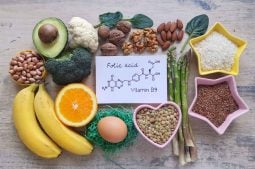
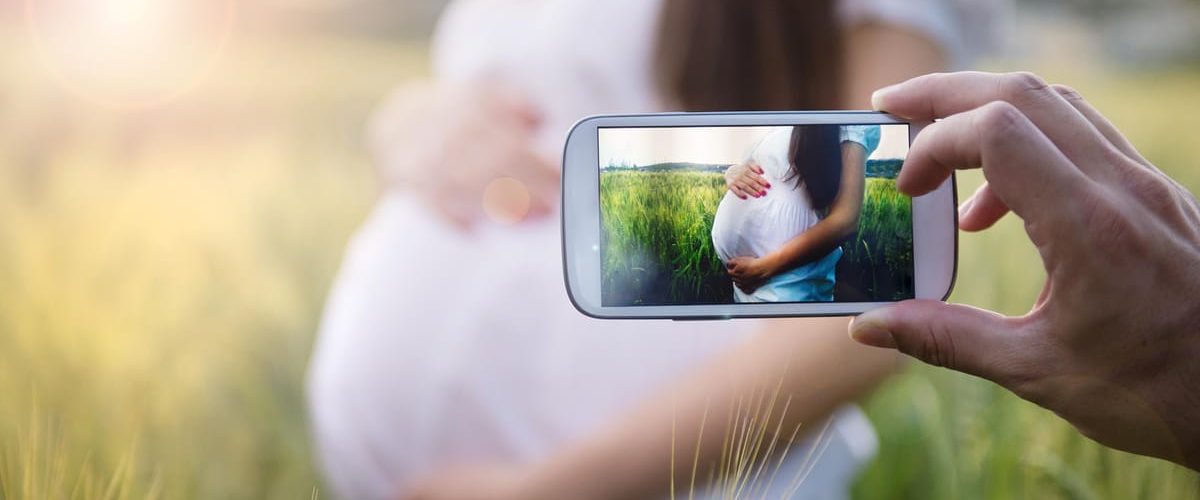
Getting pregnant at 40 is a common concern we encounter at IVI. Sometimes people wonder if it is even possible. The simple answer is yes, although it can be more difficult.
It’s a fact of nature that fertility declines as the years go by. There does come a point in a woman’s life when natural conception becomes increasingly unlikely. Getting pregnant at 40 is possible, but it is not the norm. However, modern fertility techniques can help you achieve your dream of creating a family.
Factors influencing fertility at 40
Age does not absolutely define fertility and, of course, every woman is different. However, in general, fertility does decline over time. In women from the age of 35 onwards, reproductive potential drops. After the age of 40 there is less than a 10% chance of becoming pregnant naturally in any given month.
The reason for this declining fertility, is all in the arithmetic. Girls are born with all the eggs they will ever have. At birth, they number just over a million. By puberty, between 300,000 and 500,000 eggs remain in the ovaries. However, from this very prolific starting point, only around 300 eggs will be ever fully mature and be released during ovulation. So naturally as you age, the number of remaining eggs declines. And as menopause approaches, the ovaries become less responsive to the hormones responsible for triggering ovulation.
The woman’s fertile cycle also depends on the quality of her eggs, which also decreases with age. We refer to ‘low ovarian reserve’ when there are issues with the quality or quantity of available oocytes. This hinders natural conception, and therefore, it is advisable to consult with a fertility specialist.
Preparing for pregnancy
If you’re in your 40s and considering starting a family, it’s important to be aware of certain health factors. It is necessary to undergo a comprehensive health check, not just a gynecological one. Conditions such as hypertension, for example, are also risks associated with late motherhood.
Among this, healthy living is essential. This can help improve your chances of successful conception and the birth of a healthy baby. Here you have some recommendations:
- Eating a healthy diet
- Taking regular exercise
- Maintaining a healthy weight
- Don’t smoke
However, you should also check with your doctor or clinician to see whether there is any other underlying cause of infertility. In 30% of cases there is a male factor involved, in 30% the cause is a female factor and sometimes it is not possible to pinpoint a precise cause.
Are there any risks associated with pregnancy after 40?
As a woman’s age increases, potential risks during pregnancy rise, not only for her but also for the future baby. For instance, there is a higher likelihood of giving birth through a cesarean section rather than through natural delivery.
Gestational diabetes and hypertension
There is a higher risk for women of gestational diabetes and pregnancy-related hypertension. In the former case, monitoring glucose levels during pregnancy will be necessary, and the specialist will determine the required diet or exercise. In the case of gestational hypertension, medical monitoring is also necessary.
Chromosomal abnormalities and genetic testing
When pregnancy occurs at an advanced maternal age, the risks of the baby developing chromosomal abnormalities also increase. That’s why at IVI, we offer PGT to implant embryos free from such alterations. Non-invasive prenatal tests are also conducted.
Increased likelihood of multiple pregnancies
In pregnancies after the age of 40, it is more likely for twins or multiples to be born. Multiple pregnancies pose more risks for both the mother and the babies, which is why at IVI, we advocate for Single Embryo Transfer (SET).
What can I do to improve my fertility at 40?
Although fertility inevitably declines with age, maintaining a healthy lifestyle will always be positive for the quality of oocytes. We’ve already discussed how to improve AMH through nutrition, but it’s important to remember that it also influences gametes.
Habits to Eliminate
It is crucial to quit smoking and drinking, as well as reduce caffeine intake, as it interferes with ron absorption in the body. Similarly, ultra-processed products should be eliminated from the diet. Instead, you can incorporate brown rice or whole grains.
Essential Nutrients
Regarding nutrients, among others, folic acid and vitamins D, E, and C are fundamental. Legumes, vegetables, and fruits are excellent options that provide these elements to the body.
Hydration
Hydration improves many bodily functions. Drinking one or two liters of water daily is advisable for fertility as well.
What are the options for assisted reproductive technologies?
If you are over the age of 40 and you have been trying to conceive naturally without success for six months, it is time to see a doctor. Six months may seem like a short time, but the sooner you seek help, the higher the chances of success. Making the call for a consultation is not easy and we do understand that the first step can seem a little daunting. However, at IVI we’re here to help and to let you know that you’re not alone.
IVF
In Vitro Fertilisation (IVF) is the most well-known assisted reproduction technique. It is a very well-established procedure in which embryos are created by fertilising the egg with the sperm in a laboratory. The resulting embryos are then transferred to the woman’s uterus. There are two ways of conducting this procedure. The fertilisation process may be carried out with conventional IVF in which the sperm and egg are mingled together in a culture plate, or else via ICSI, which consists of inserting a live spermatozoon into the oocyte by puncturing it with the aid of a pipette.
There is also the option of IVF plus PGS (Preimplantation Genetic Screening) which has the advantages of reducing the chance of miscarriage and increasing the success rate per embryo transfer.
IVF with egg donation
Sometimes, getting pregnant at 40 is possible thanks to egg donation. This is the process whereby oocytes from a donor are combined with spermatozoa, either from the male partner or from a donor, to achieve the desired pregnancy. This technique can make the miracle of parenthood possible for women who would not be able to have children any other way.
Egg freezing
Recommended for younger women who wish to delay parenthood for career, social or medical reasons, fertility preservation involves freezing and storing eggs, sperm, or embryos. These techniques for preserving fertility offer women flexibility concerning their own fertility decisions and freedom of choice over when to become a mother.
If you think this could be the way for you to see your dream of parenthood come true, have a look at our video about our egg donation programme, or get in touch with IVI using our contact centre. We’re here to help.


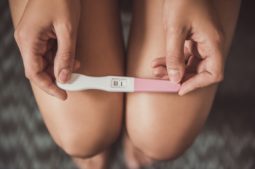
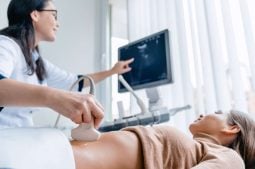
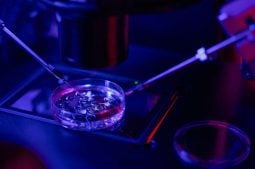
Comments are closed here.